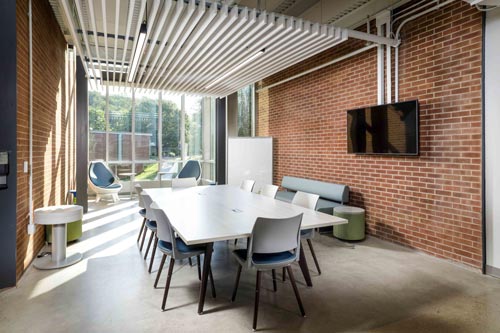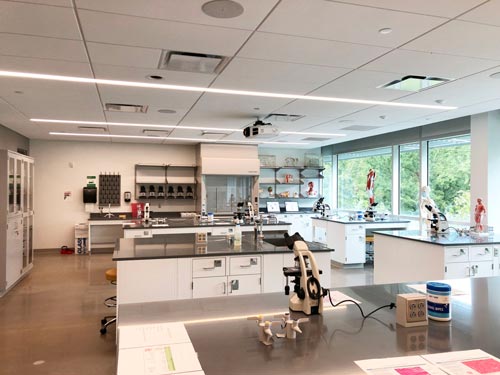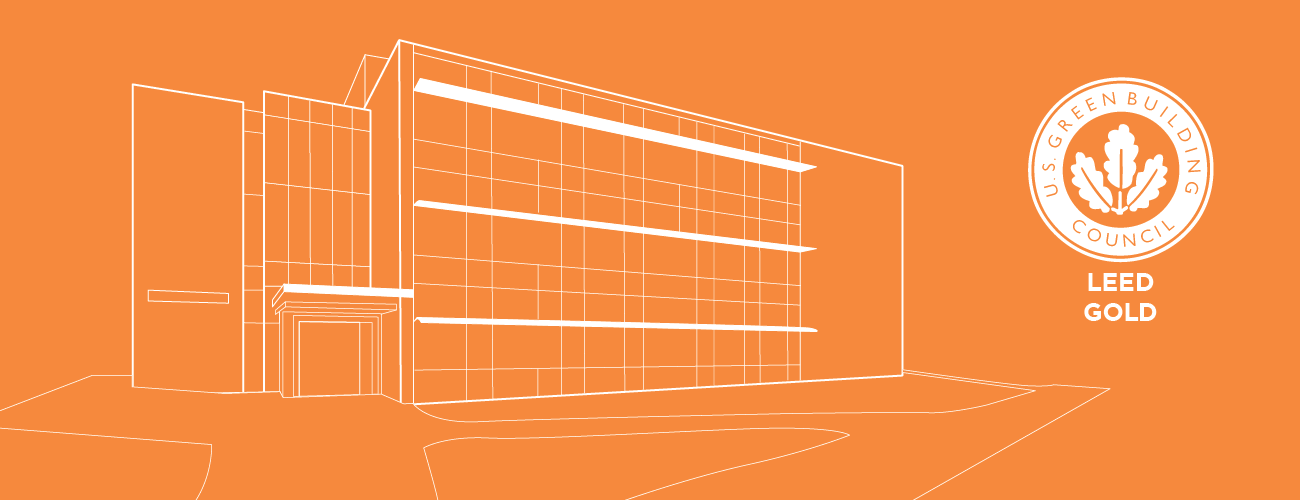Penn State University Ostermayer Hall
Pennsylvania’s largest university, Penn State recently enacted a policy to pursue LEED certification for all its new buildings. evolveEA managed the LEED process and guided the project team for Ostermayer Hall in achieving LEED Gold certification for this celebrated project at Penn State’s Greater Allegheny Campus.

Student space inside PSU Ostermayer Hall, LEED Gold building. Photo courtesy of BCJ.
Ostermayer Hall was originally built in 1973, and its renovation creates new teaching and laboratory facilities outfitted with state-of-the-art technology for the school’s science programs. The design team focused on improved energy efficiency, reductions in water use, and use of healthy materials for improved indoor air quality, all of which reduce the building’s environmental impact. These efforts led to 37% reduced water usage, and improved energy performance well above the University’s benchmark sustainability goals projected to produce energy cost savings of 17%.

Biology laboratory at LEED Gold PSU Ostermayer Hall. Photo courtesy of BCJ.
A three-story curtain wall entry and several new windows increased the amount of natural light that enters the building. Along with new efficient mechanical and electrical systems, this reduced the number of required light fixtures and contributed to the project’s energy savings. All 5 of the potential LEED innovation points were achieved, including a “safety-first” credit developed during the COVID-19 pandemic to address best practices related to the design of indoor air quality and infection control. Ostermayer Hall exemplifies the University’s green building principles, and is among the its highest scoring LEED Certified projects statewide. The refreshed building contains new teaching and research labs for both biology and chemistry as well as general function active learning classrooms, faculty offices and support spaces, and student collaborative space.


